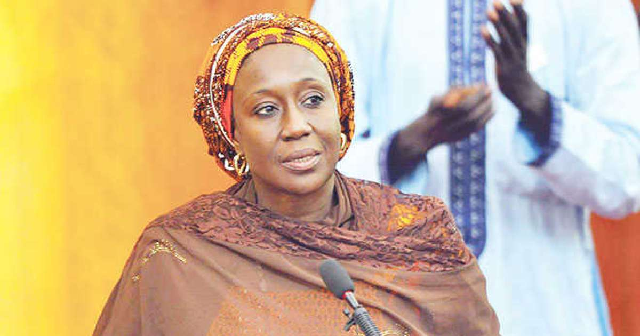Hajiya Aisha Abubakar, the Minister of State for Industry, Trade and Investment, said that the Federal Government was implementing financial education strategy to help the Micro Small and Medium Enterprises (MSMEs) manage their business finances.
Abubakar said this in Abuja on Thursday at the Fate Foundation, a Non-Governmental Organisation (NGO’s) forth policy dialogue series on entrepreneurship.
The theme of the dialogue is “Building Sustainable Businesses: The Case for Deepening Financial Literacy”.
She said that the country must acknowledge the important role financial literacy played in building sustainable businesses in Nigeria.
“As part of its business advisory functions, the Bank of Industry (BOI) has embarked on many initiatives designed to address the challenge of financial literacy.
“ The initiatives are capacity building programme for different segments for MSMEs, those under the graduate entrepreneurship fund, youth entrepreneurship support programme and Kaduna start-up and entrepreneurship programme.
“BOI also launched small and medium enterprises accounting App to assist MSME entrepreneurs better keep their books and financial records,’’ Abubakar said.
She said that financial literacy was now globally recognised as a major life skill and a factor of economic and financial stability and development of MSMEs for performance.
“ Financial literacy encompasses knowledge cognitive skill and attitudes to financial matters.
“Financially literate entrepreneurs of MSMEs are more likely to better manage their businesses than those that are not financially literate,” Abubakar said.
She said that government’s efforts at unlocking access to finance for MSMEs through strategic institutions had not achieved the desired impact.
Abubakar added that development experts recognised why most MSMEs could not access the funds because they failed to provide financial information required to evaluate their investment requests.
According to her, the Federal Government will continue to support financial literacy initiatives, including recent efforts to inculcate financial literacy education into syllabi in Nigeria’s educational institutions at all levels.
“The ministry believes that with a progressive policy framework, long-term growth and sustainability of MSMEs can be achieved.
“The ministry will ensure that rapid improvement in financial literacy is continually accorded very high priority in the scheme of things as it’s a sine qua none for transforming Nigeria into a global competitive industrialised country.
Mrs Adenike Adeyemi, Executive Director of the foundation, said that financial literacy enabled entrepreneurs to plan financially, manage financial risk, cash flow, identify and seek appropriate financial support.
Adeyemi said that more than 18 years, the foundation supported Nigerian entrepreneurs to start, grow and scale their businesses, adding that financial literacy was critical knowledge gap faced by MSMEs in Nigeria.
“Given that financial literacy is not effectively emphasized in the Nigeria curriculum at the post-basic and tertiary level, most entrepreneurs often struggle with understanding the financial rudiments of running a sustainable business.
“Most of them cannot do record keeping, cash flow management, preparing projections and taxation,’’ she said.
Adeyemi said in order to understand the financial literacy in Nigeria, the foundation, in association with the Association of Chartered Certified Accountants (ACCA), carried out a survey.
She said that the survey findings would serve as input into the report on “How to better Enable Nigerian MSMEs with Financial Literacy’’ which was being developed with technical and knowledge of ACCA.
Adeyemi added that the report would be used to provide recommendations on policy and programme design and implementation strategies.
According to her, the report will be launched in August and will include recommendations for MSME Financial Literacy Curriculum content and delivery guidelines for those in the entrepreneurship ecosystem.













